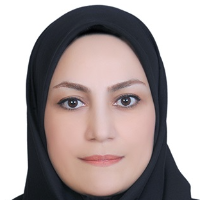Predicting Social Skills in Autism Spectrum Disorder based on Attachment Styles: The Mediating Role of Emotion Regulation
The quality of the parent-child interaction plays a major role in children’s normal development. Social skill acquisition is also part of children’s socialization process which can lead to an ideal emotional relationships. The purpose of the present study then was to determine the role of attachment styles in the prediction of social skills in children with autism spectrum disorder and to examin the mediating role of emotion regulation in this relation.
In a descriptive-analytical study, among Tehran clinics and autism schools 420 children (315 boys, 105 girls) with Autism Spectrum Disorder were assessed in the 2022 year by the Autism Spectrum Screening Questionnaire (ASSQ), and the Raven’s Colored Progressive Matrices (RCPM). A sample of 102 children (24 girls and 78 boys) was selected with a ≥19 score in ASSQ and >70 in RCPM. All children’s parents completed the Autism Social Skills Profile (ASSP), Middle Childhood Attachment Scale (MCAS), and Emotion Regulation Checklist (ERC) as well. Path Analysis analyzed the data in SPSS Macro version 24.
The Spearman correlation matrix showed that attachment style has a negative and direct correlation with social skills (r= -0.42) and by moving from a secure to an insecure attachment style it is possible to predict a weakness in social skills. In addition, emotion regulation showed a positive correlation with social skills (r= 0.57). Path analysis showed that one unit increase in emotion regulation could add 0.89 units to social skills. Although no direct effect was observed on social skills by attachment styles, emotional regulation could significantly mediate the relationship between attachment styles and social skills.
Considering the mediating role of emotional regulation in the relationship between attachment styles and social skills in children with autism, it can be concluded that parents play an important role in creating a secure attachment style and help children acquire social skills with emotional regulation.
-
Clinical and laboratory findings of hospitalized older adults with covid-19 in Isfahan in 2021
Hamidreza Ashjaazadeh, Nasibeh Zanjari, Mojtaba Azadbakht, Razieh Bidhevdi, Zhaleh Zandieh*
Journal Of Gerontology, -
Effect of Digital-Based Cognitive Rehabilitation on Executive Functions in Children with Attention Deficit/Hyperactivity Disorder
Milad Haidarian, Masoume Pourmohamadreza-Tajrishi, Vahid Nejati, Mohsen Vahedi
Middle East Journal of Rehabilitation and Health Studies, Jan 2025 -
Investigating the Effectiveness of Cogniplus Cognitive Training Program on Social Cognition (Theory of Mind) in 6- to 8-year-old Children With Autism Spectrum Disorder
Zahra Tajik, Masoume Pourmohamadreza-Tajrishi*, Marjan Posht Mashhadi,
Archives of Rehabilitation, -
Investigating the Relationship Between Online Game Addiction and Marital Satisfaction in Iranian Couples
Narges Khaefi, Masoomeh Maarefvand*,
Journal of Social Work,


